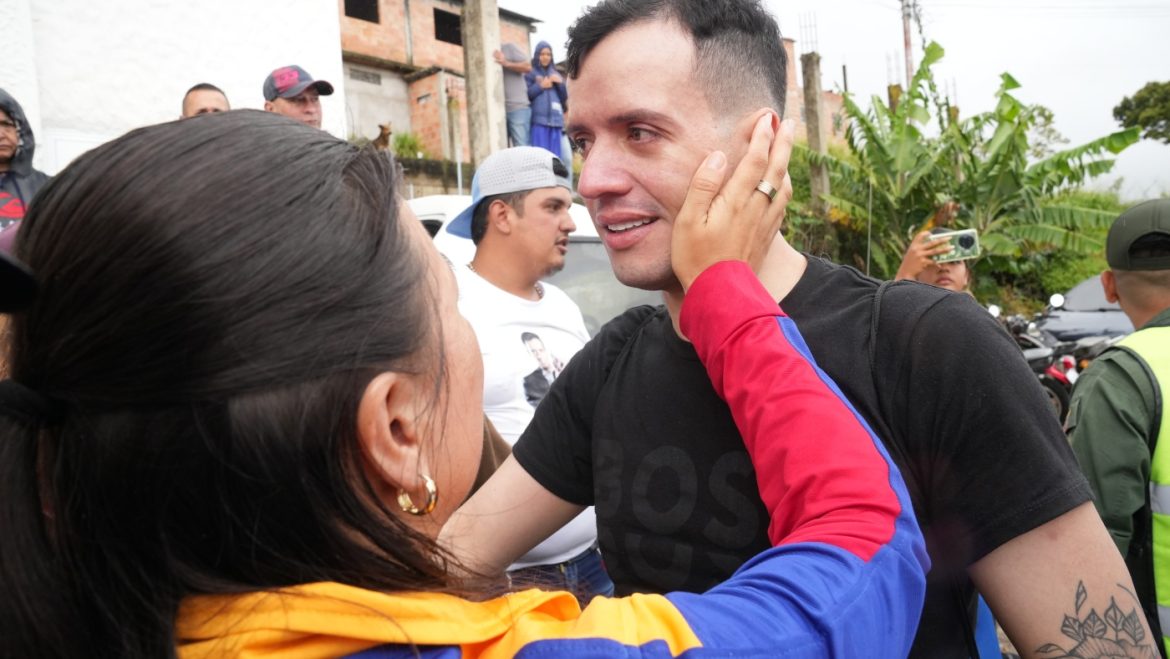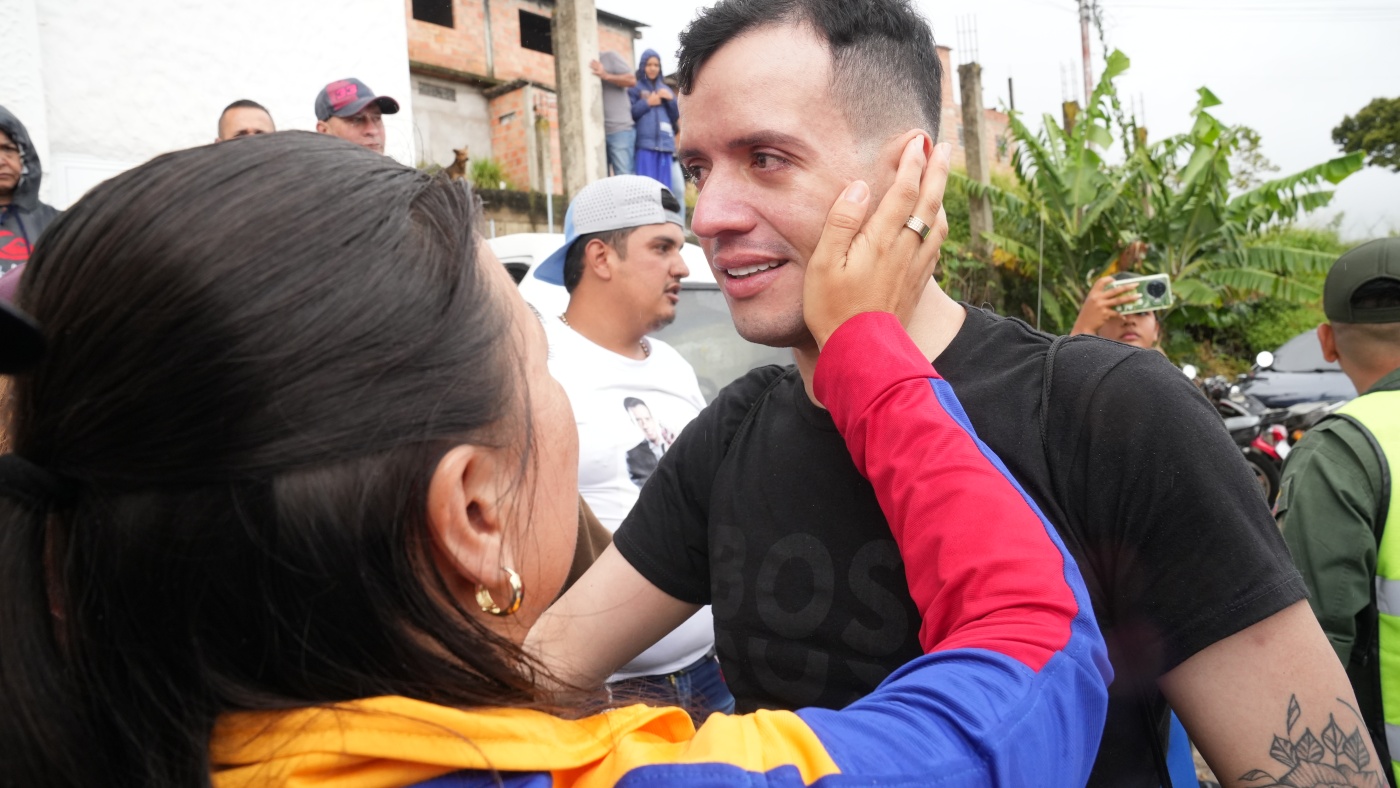The Unforeseen Nightmare: An Analysis of Venezuelan Deportees’ Experiences in El Salvador’s Mega-Prison
Introduction: A Disturbing Reality
The recent surge in news reports detailing the experiences of Venezuelan migrants deported to El Salvador’s mega-prison, the Center for Terrorism Confinement (CECOT), has sent shockwaves through the international community. These individuals, who initially sought refuge in the United States, now find themselves in what many describe as a nightmarish reality. The accounts of brutality, neglect, and despair paint a grim picture of a system that has failed to protect some of the most vulnerable individuals in society. This report aims to dissect the legal, humanitarian, and geopolitical dimensions of this unfolding crisis, shedding light on the broader implications for human rights and international relations.
The Legal Framework: The Alien Enemies Act
The deportation of Venezuelan migrants to El Salvador was executed under the Alien Enemies Act of 1798, a law that has seen limited use in modern times. Originally designed to address threats during wartime, this legislation grants the U.S. government sweeping powers to detain and deport individuals deemed a threat to national security. The application of this archaic law to contemporary immigration enforcement raises significant concerns about its relevance and potential for misuse.
Questions of Transparency and Motivation
The rationale behind the use of the Alien Enemies Act remains unclear. Was this a response to perceived national security threats, or was it a politically motivated move to alleviate the strain on U.S. immigration resources? The lack of transparency surrounding the decision has drawn criticism from human rights organizations and legal scholars alike. The absence of clear guidelines and the broad discretion granted to authorities under this law create an environment ripe for abuse and arbitrary decision-making.
Legal and Ethical Implications
The use of the Alien Enemies Act to deport asylum seekers raises serious legal and ethical questions. The principle of *non-refoulement*, which prohibits the return of individuals to countries where they face persecution or torture, appears to have been disregarded in these cases. This principle is a cornerstone of international human rights law, and its violation undermines the very foundations of the global refugee protection system. The lack of due process and the absence of meaningful legal representation for these deportees further exacerbate the ethical concerns surrounding their treatment.
Inside CECOT: A Closer Look
El Salvador’s Center for Terrorism Confinement, or CECOT, has been touted as a modern marvel of security, designed to house tens of thousands of alleged gang members. However, the accounts of Venezuelan deportees paint a far grimmer reality. The facility, which is presented as a symbol of the country’s hardline approach to crime, has become a site of alleged abuse, neglect, and despair.
Allegations of Brutality and Abuse
Numerous reports detail instances of physical and psychological abuse within CECOT. Deportees allege beatings, torture, and sexual assault at the hands of prison guards. The motivations behind these acts remain unclear, but they suggest a culture of impunity and a lack of accountability within the prison system. One Venezuelan man recounted being shot every morning for a week following a prison riot, illustrating the extreme violence inflicted upon inmates. These claims, if verified, represent severe violations of human rights and international law.
Deplorable Living Conditions
Beyond the alleged abuse, the general living conditions within CECOT appear to be dire. Migrants describe meager rations, inadequate medical care, and near-total isolation. Overcrowding, a common issue in many prisons, likely exacerbates these problems, creating an environment ripe for disease and despair. Jerce Reyes, one of the deported migrants, described feeling like the “living dead” inside CECOT, highlighting the profound psychological toll of the prison environment. The lack of access to legal representation further compounds their vulnerability, leaving them with little recourse against abuse or mistreatment.
False Accusations and Lack of Due Process
Adding insult to injury, many of the deported Venezuelans claim they were falsely accused of gang affiliation. With limited access to legal counsel and a language barrier, they were unable to effectively defend themselves against these charges. This lack of due process raises serious concerns about the fairness and legality of their detention and deportation. The absence of transparent and fair legal procedures undermines the rule of law and erodes public trust in the justice system.
Geopolitical Dimensions: The Broader Context
The plight of these Venezuelan deportees must be viewed within the broader context of U.S.-Venezuela relations and the ongoing migration crisis. Venezuela’s political and economic instability has led to a massive exodus of its citizens, many of whom seek asylum in the United States. The deportation of these migrants to El Salvador, a country with its own human rights concerns, raises questions about whether they were used as a bargaining chip in negotiations between the U.S., Venezuela, and El Salvador.
A Bargaining Chip?
The exchange of Venezuelan prisoners held in the U.S. for deported migrants fuels speculation about the geopolitical motivations behind these actions. The U.S. government’s decision to use the Alien Enemies Act to deport asylum seekers may have been influenced by broader strategic considerations, including efforts to stabilize relations with Venezuela and El Salvador. However, the use of vulnerable individuals as pawns in geopolitical negotiations is a troubling development that undermines the principles of human rights and international law.
The Role of El Salvador
El Salvador’s willingness to accept these deportees also warrants scrutiny. President Nayib Bukele’s government has been criticized for its authoritarian tendencies and its heavy-handed approach to crime. By accepting these deportees, El Salvador may be seeking to curry favor with the U.S. or to project an image of strength and control. However, the human cost of these political maneuvers is significant, and the alleged abuse and mistreatment within CECOT raise serious concerns about the country’s commitment to human rights.
Implications and the Way Forward
The experiences of these Venezuelan deportees have far-reaching implications for human rights, international law, and U.S. immigration policy. The alleged abuse and mistreatment within CECOT represent a clear violation of fundamental human rights. The principle of *non-refoulement*, which prohibits the return of individuals to countries where they face persecution or torture, appears to have been disregarded in these cases. This principle is a cornerstone of international human rights law, and its violation undermines the very foundations of the global refugee protection system.
Erosion of Human Rights
The use of the Alien Enemies Act to deport asylum seekers raises serious legal and ethical questions. Was this law applied appropriately, and were the rights of these individuals adequately protected? The lack of transparency surrounding these deportations undermines public trust in the U.S. immigration system. The absence of clear guidelines and the broad discretion granted to authorities under this law create an environment ripe for abuse and arbitrary decision-making.
A Call for Accountability
An independent investigation into the allegations of abuse and mistreatment within CECOT is urgently needed. Those responsible for these violations must be held accountable, and measures must be taken to prevent similar incidents from occurring in the future. The international community has a responsibility to support these individuals and to ensure that their rights are respected. This includes providing them with legal assistance, medical care, and psychological support. It also requires advocating for greater transparency and accountability within the U.S. immigration system and demanding an end to the inhumane treatment of migrants in detention centers around the world.
Beyond “Hell on Earth”: Rebuilding Hope
The stories emerging from CECOT are harrowing, but they also highlight the resilience of the human spirit. Despite enduring unimaginable hardship, these Venezuelan migrants have found the strength to speak out and share their experiences. The international community has a responsibility to support these individuals and to ensure that their rights are respected. This includes providing them with legal assistance, medical care, and psychological support. It also requires advocating for greater transparency and accountability within the U.S. immigration system and demanding an end to the inhumane treatment of migrants in detention centers around the world.
The nightmare they experienced must not be in vain. Instead, it must serve as a catalyst for change, prompting a renewed commitment to human rights and a more compassionate approach to immigration. The experiences of these deportees underscore the urgent need for reform in immigration policies and the protection of vulnerable individuals seeking refuge. By addressing these issues head-on, we can work towards a future where the principles of human dignity and justice are upheld for all.


